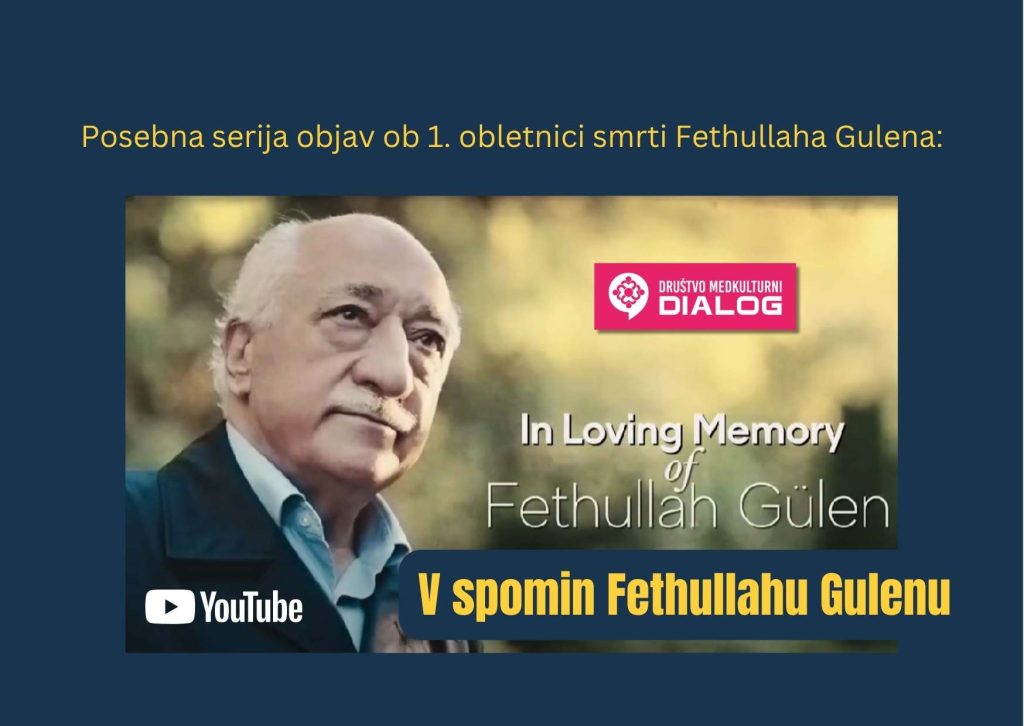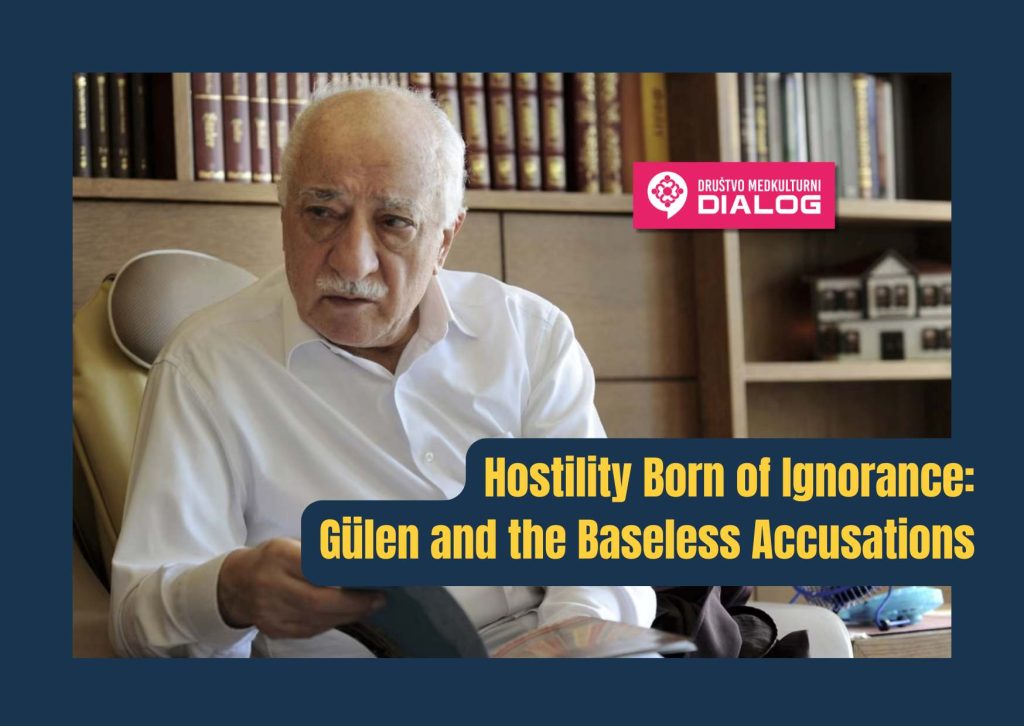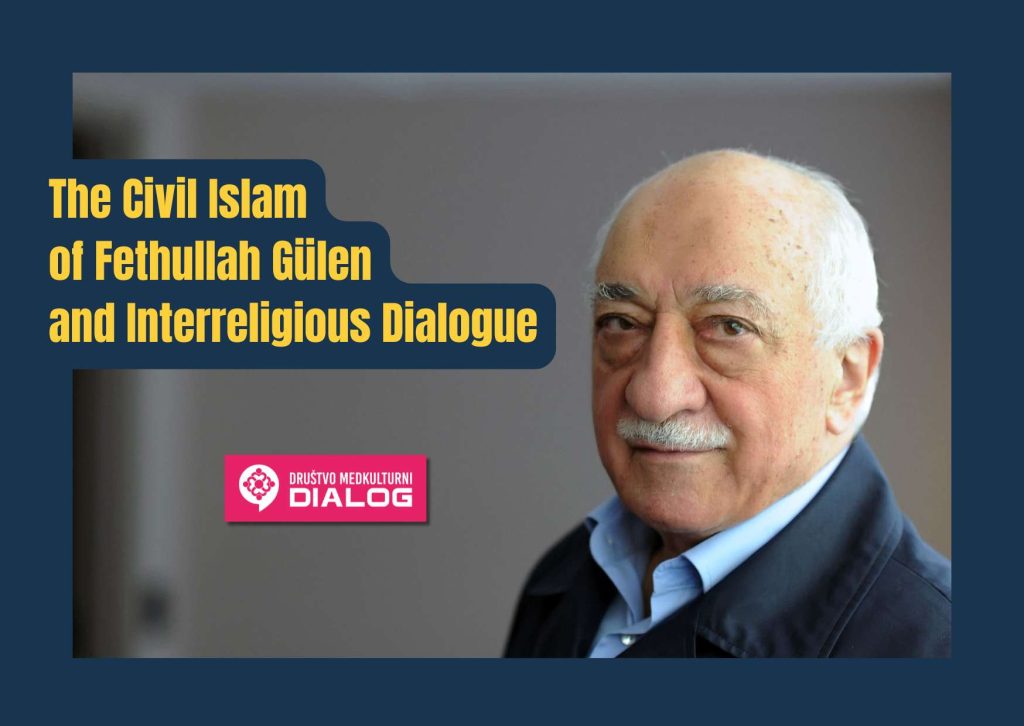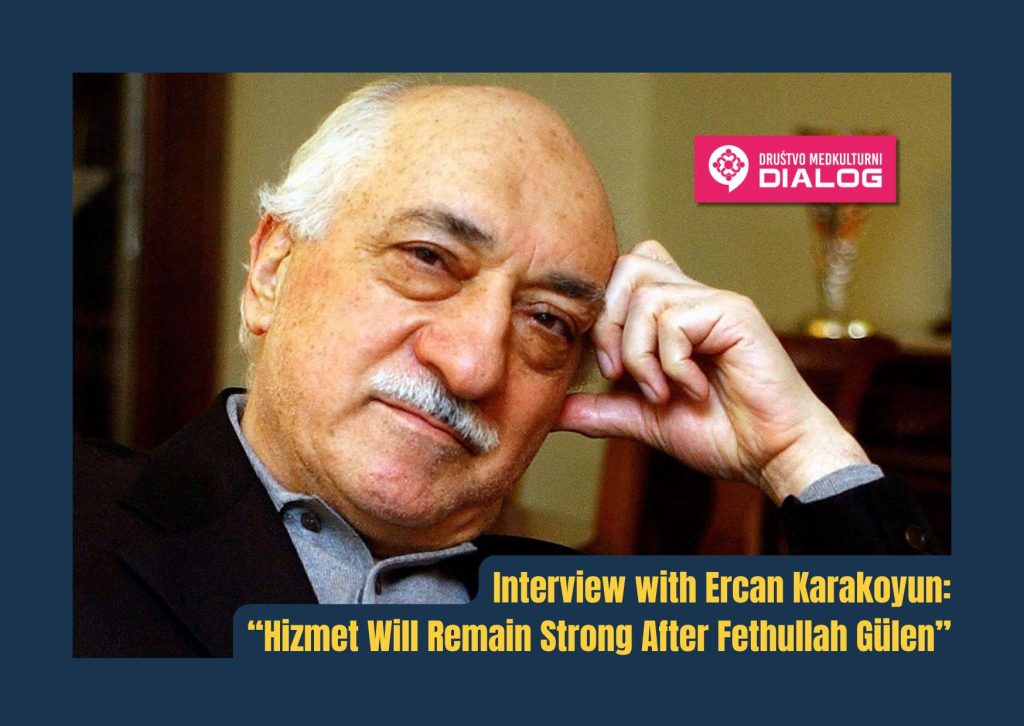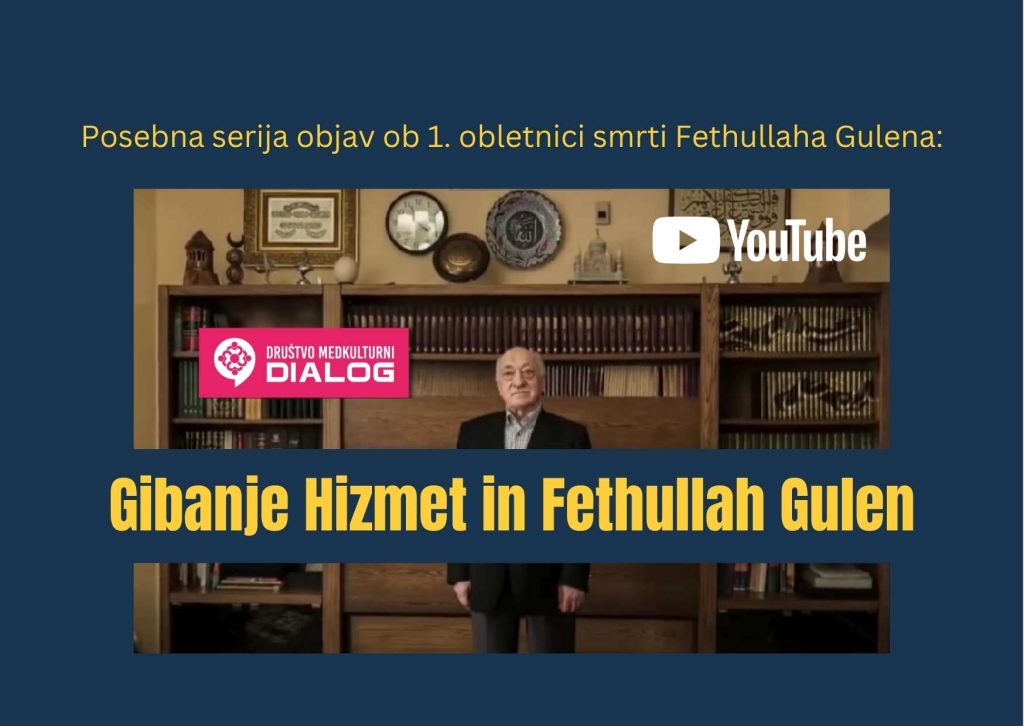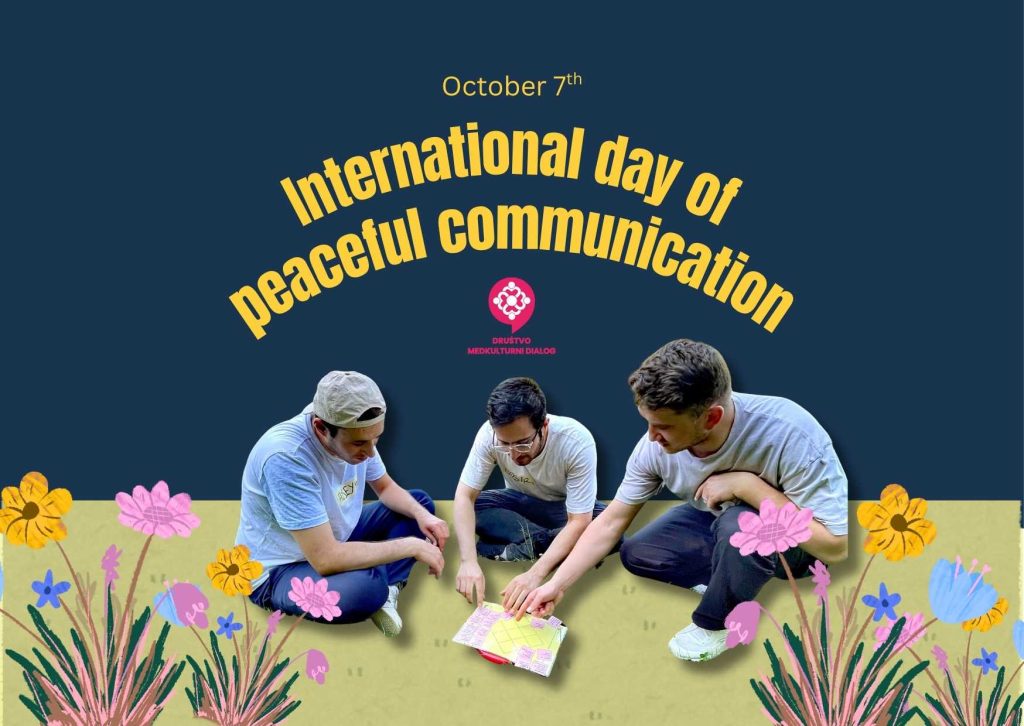Series of articles in honor of F. Gulen: The Nature of Fethullah Gulen’s legacy
By Arhan Kardaş – November 15, 2024 | Translated from German
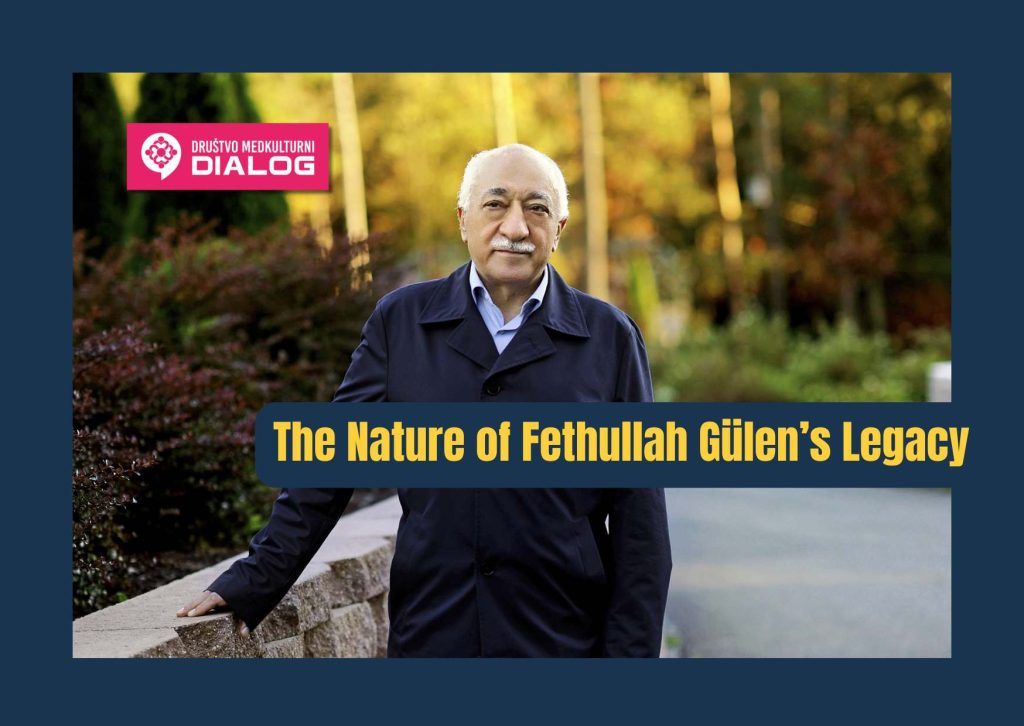
Muhammed Fethullah Gülen leaves behind a legacy that transcends his person: a unique synthesis of education, dialogue, and social responsibility that sets new standards in the history of Islam.
Fethullah Gülen—a prominent Islamic scholar, public intellectual, educator, and spiritual guide; a dedicated advocate of interfaith and intercultural dialogue—passed away on October 20 at the age of 86. Every human dies, but not every human truly lives.
His multifaceted life will no doubt continue to be studied by future generations. In this humble contribution, I will attempt to objectively reflect on his legacy, despite being personally shaken by his passing.
A Modest Material Legacy
A few days ago, Gülen’s close companions and relatives published details of his material estate on the website herkul.org. Upon his death, a legal document was found transferring the rights to his written works to the “Cascade Trust.” The estate also included 20,020 USD in gold coins from book royalties and 12,640 USD designated as gifts for newborns and newlyweds.
In his pocket were 2,000 USD he had set aside for burial expenses. A modest sum—less than the savings of a guest worker—especially when compared to the private wealth of authoritarian rulers. For some, this would not even cover a day’s worth of expenses.
A Life of Celibacy and Detachment
Gülen lived a celibate life—like John the Baptist or Imam Nawawi. He had no wife or children. His closest relatives live humble lives and suffer the consequences of bearing his surname: some were abducted, dispossessed, or exiled solely for being related to him.
Given these facts, it is unconvincing to claim that Gülen lived his 86 years in pursuit of material gain or power. So what did he live for, and what is the true nature of his legacy? In his final interview, published in 2024, Gülen himself answered this question.
“What I Believe In, and What I Live For”
“My wish, my hope for humanity is this: world peace. I ask this from God. He is the one who will create that peace.”
In that interview, Gülen addressed many questions related to the movement that formed around him. He named world peace as the ultimate goal, with education as the primary tool for achieving it. Fighting poverty and polarization, overcoming hatred and envy, and cultivating virtue were essential elements of his vision. But for any of this to happen, he said, one must first win over those who can influence others.
Peace, Love, and Responsible Participation
Love for God and humanity, the pursuit of peace, and active, responsible participation in society were among Gülen’s core messages.
His intellectual and spiritual legacy includes an immense archive of audiovisual and written materials—perhaps unmatched. Almost all of his sermons and talks were recorded. If transcribed, they would fill over 200 volumes. His authored works alone span dozens of books.
This intellectual wealth will continue to inspire not only his own movement but also others focused on education and dialogue. From a sociological perspective, movements grounded in written legacies often last for centuries, if not millennia.
Heirs of His Work
Gülen mentored hundreds of students who now view themselves as custodians of his legacy. Thousands more were inspired by him, collaborated with him, or contributed to the shared goals of the movement. They are the heirs of his mission.
Much like the disciples of Mawlana Khalid al-Baghdadi (d. 1837) or Bediüzzaman Said Nursi (d. 1960), Gülen’s companions will shape the future of the movement and inspire younger generations through their words and actions.
A Unique Movement in Islamic History
The extraordinary spread of Islam in the 7th century through military expansion was a rare historical event. But the long-term success of early Muslims came not from conquest, but from winning hearts through the message of the Qur’an. No nation ever became animist because of Mongol invasions in the 13th century; brute force cannot change hearts.
In contrast, Hizmet’s accomplishments cannot be classified in terms of conquest or political power. Its focus has always been education, dialogue, humanitarian aid, and human rights.
Even compared to earlier educational movements—like the Nizamiyya institutions of the 12th and 13th centuries—the Hizmet model is unique. It reaches out to all people, regardless of religion, ethnicity, or language.
The movement promotes a civil Islam—rejecting violence and the political instrumentalization of religion. In both classical and modern Islamic history, there is no comparable example. In this regard, Hizmet is a one-of-a-kind phenomenon.
Misinterpretations in the West
Unfortunately, in Germany and elsewhere, Gülen’s name is often tied to Turkish domestic politics. This is somewhat understandable: the movement originated in Turkey and was later exiled from it.
Yet, Gülen’s major works and the foundations of the movement were already established a decade before the AKP came to power. He was a consistent supporter of democracy—without hesitation or conditions. His book “No Return from Democracy” summarizes his stance.
Gülen repeatedly condemned all military coups, including the ones in 1971, 1980, and 1998. In fact, he and his movement have always been victims of such coups. The failed attempt in 2016 only intensified their persecution.
Beyond Turkish Politics
It is a mistake to view Gülen solely through the lens of Turkish politics. Similarly, it is not accurate to define the Hizmet volunteers—who have faced exile and repression—as if the failed coup attempt were the essence of the movement’s story.
Gülen aimed to base his efforts in education and dialogue on the shared, universal values of humanity—not on partisan interests. That is why it is essential to see his legacy in a broader, global context.
I am confident that his intellectual legacy will continue to inspire not only Hizmet, but also many other education- and dialogue-centered initiatives around the world. Whether Turkey will one day re-embrace this vision remains uncertain.
About the Author
Dr. Arhan Kardaş studied law, philosophy, and history in Ankara, Gazi, and Bilkent, as well as law in Vienna. He earned his doctorate in 2019 under Prof. Dr. Mathias Rohe with a dissertation on “Gender Equality in Islamic Law?” He currently teaches Jewish Studies and Religious Studies at the University of Potsdam, serves as editor-in-chief of Fontäneand Fontäne Jugend journals, and is the president of the Islamic Academy for Education and Society.
We are sharing several posts in the series of articles commemorating the anniversary of F. Gulen’s departure from this world in November 20th 2024. Follow our page for more interviews, articles and videos speaking about the passed away leader of the Hizmet movement. You are welcome to browse through other related articles HERE.

